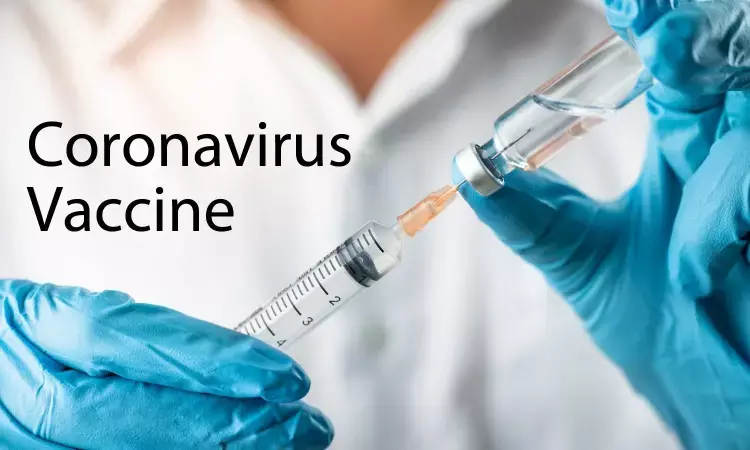- Home
- Medical news & Guidelines
- Anesthesiology
- Cardiology and CTVS
- Critical Care
- Dentistry
- Dermatology
- Diabetes and Endocrinology
- ENT
- Gastroenterology
- Medicine
- Nephrology
- Neurology
- Obstretics-Gynaecology
- Oncology
- Ophthalmology
- Orthopaedics
- Pediatrics-Neonatology
- Psychiatry
- Pulmonology
- Radiology
- Surgery
- Urology
- Laboratory Medicine
- Diet
- Nursing
- Paramedical
- Physiotherapy
- Health news
- Fact Check
- Bone Health Fact Check
- Brain Health Fact Check
- Cancer Related Fact Check
- Child Care Fact Check
- Dental and oral health fact check
- Diabetes and metabolic health fact check
- Diet and Nutrition Fact Check
- Eye and ENT Care Fact Check
- Fitness fact check
- Gut health fact check
- Heart health fact check
- Kidney health fact check
- Medical education fact check
- Men's health fact check
- Respiratory fact check
- Skin and hair care fact check
- Vaccine and Immunization fact check
- Women's health fact check
- AYUSH
- State News
- Andaman and Nicobar Islands
- Andhra Pradesh
- Arunachal Pradesh
- Assam
- Bihar
- Chandigarh
- Chattisgarh
- Dadra and Nagar Haveli
- Daman and Diu
- Delhi
- Goa
- Gujarat
- Haryana
- Himachal Pradesh
- Jammu & Kashmir
- Jharkhand
- Karnataka
- Kerala
- Ladakh
- Lakshadweep
- Madhya Pradesh
- Maharashtra
- Manipur
- Meghalaya
- Mizoram
- Nagaland
- Odisha
- Puducherry
- Punjab
- Rajasthan
- Sikkim
- Tamil Nadu
- Telangana
- Tripura
- Uttar Pradesh
- Uttrakhand
- West Bengal
- Medical Education
- Industry
First Dose of Pfizer Vaccine Gives About 50% COVID Protection, Not 91% as claimed

An article published by The Sun and another article in The Evening Standard reported that the Pfizer/BioNTech coronavirus vaccine gives "91 per cent protection" from COVID-19 after just the first dose. The article refers to a study published in the New England Journal of Medicine. In a push to speed up the immunization in the UK, politicians such as former MP Tony Blair urged a faster roll out of the first vaccine in order to stop the surge of the virus, before stocks of a second dose are ready. Professor David Salisbury, in charge of immunization programs at the Department of Health until 2013, is quoted as saying, "If you look at the New England Journal of Medicine paper about the Pfizer vaccine..you give one dose and you get 91 per cent protection, you give two doses and you get 95 per cent."
The NEJM paper actually states that the efficacy between the first and second doses was found to be 52 percent when given 21 days apart. After the second dose, the efficacy raises to 95 percent.
A spokesperson at Pfizer has responded to the call for the aggressive roll out the first dose. "As has been previously reported and published in The New England Journal of Medicine, the final primary efficacy analysis of our ongoing Phase 3 clinical study demonstrated a vaccine efficacy rate of 95 per cent in participants, from 7 days after the second dose.
Although some protection from the vaccine appears to begin after the first dose (52 per cent), the information for healthcare professionals approved by the UK regulator (the MHRA) states that, individuals may not be protected until at least 7 days after their second dose of the same vaccine. Two doses of the vaccine 21 days apart are required to provide the maximum protection and this correlates with the level of neutralising antibodies."
The study's authors noted, however, that it was not "designed to assess the efficacy of a single-dose regimen".
According to preliminary data from Israel's mass vaccination program as reported by Newsweek, the Pfizer vaccine reduces the risk of infection by around 50 percent 14 days after the first of two shots is administered.
Hina Zahid Joined Medical Dialogue in 2017 with a passion to work as a Reporter. She coordinates with various national and international journals and association and covers all the stories related to Medical guidelines, Medical Journals, rare medical surgeries as well as all the updates in the medical field. Email: editorial@medicaldialogues.in. Contact no. 011-43720751
Dr Kamal Kant Kohli-MBBS, DTCD- a chest specialist with more than 30 years of practice and a flair for writing clinical articles, Dr Kamal Kant Kohli joined Medical Dialogues as a Chief Editor of Medical News. Besides writing articles, as an editor, he proofreads and verifies all the medical content published on Medical Dialogues including those coming from journals, studies,medical conferences,guidelines etc. Email: drkohli@medicaldialogues.in. Contact no. 011-43720751


